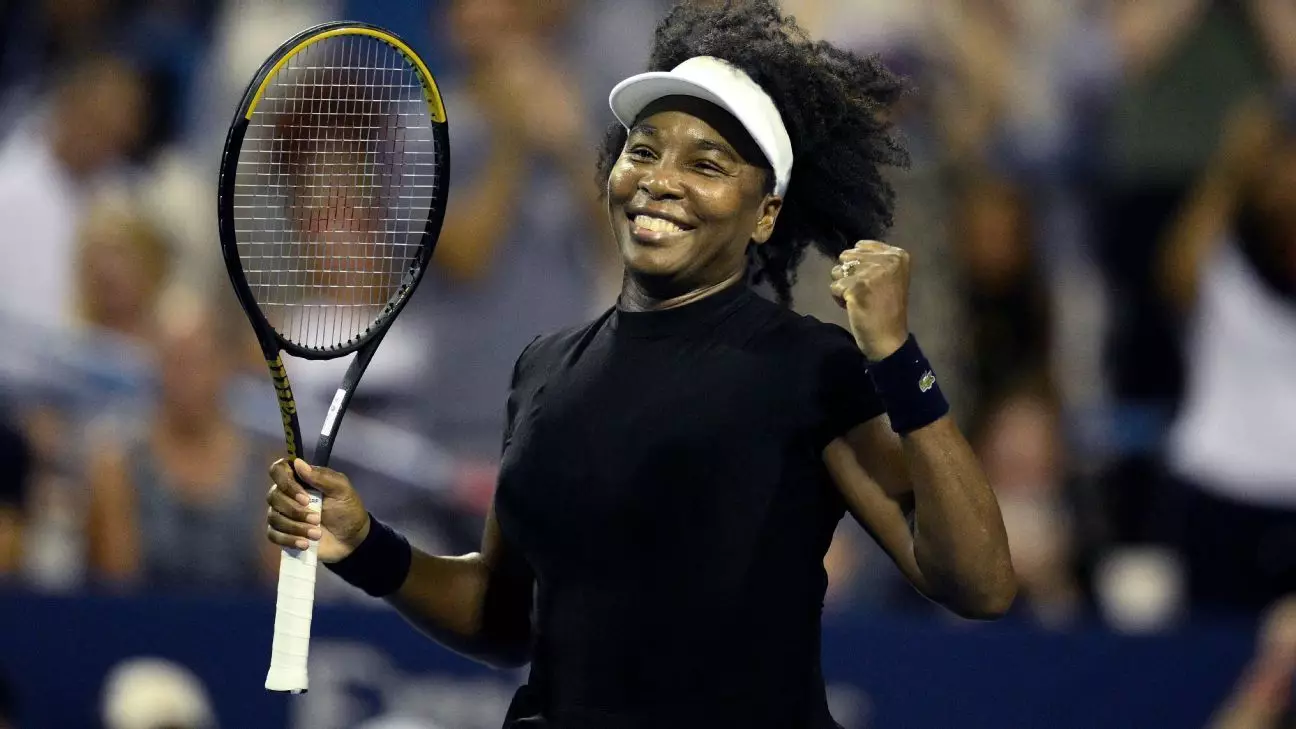Venus Williams’ recent victory at the age of 45 is not merely a rare tennis achievement—it is a bold statement against the ingrained societal and athletic biases that relegated older athletes to the sidelines. In a culture obsessed with youth, dismissing the elderly as irrelevant or incapable of competitive performance, Williams’s resurgence disrupts these narratives and demonstrates that resilience, passion, and skill are ageless. Her victory is a testament to the fact that perseverance and dedication can defy conventional limitations, urging a broader reevaluation of what is possible for aging athletes—and, by extension, for aging individuals in society.
Her performance challenges the deeply rooted assumption that peak athletic ability is confined to a narrow age window. While the media often romanticizes youth, Williams’s display of mastery—hitting powerful serves and making precise groundstrokes—reminds us that professional excellence can persist well beyond the typical retirement age. This isn’t just about tennis; it’s about confronting ageist assumptions in all walks of life, advocating for a society that values experience and wisdom equally, regardless of chronological age.
Elevating the Role of Experience and Adaptability
What sets Venus Williams apart isn’t just physical prowess—her victory underscores the often underappreciated value of experience. In sports, as in life, seasoned individuals bring a level of strategic judgment, mental resilience, and nuanced understanding of their craft that often surpasses the raw physicality of youth. Williams’s comeback illustrates that age can be an asset when combined with adaptability. She has evolved her game, employing her vast knowledge to navigate the match against a younger, rising player like Peyton Stearns.
Her ability to execute powerful serves, respond with timely groundstrokes, and recover from setbacks highlights an attribute that surpasses physical strength: mental fortitude. In a broader societal context, this resilience advocates for the recognition and embrace of wisdom gained through life experience. Her return to competitive tennis showcases how embracing one’s age — instead of fighting it — can lead to a more profound form of mastery that resonates beyond the court.
Challenging the Center-Right Narrative of Progress and Change
Within the political discourse, many center-leaning liberals argue for a society that balances tradition with progress, respecting the wisdom of age while welcoming innovation. Venus Williams’s journey embodies this balance; she honors her legacy and skills while still daring to challenge herself anew. Her success questions the narrative that progress inevitably requires radical youth, instead proposing that meaningful change often stems from seasoned expertise and a refusal to surrender to obsolescence.
She defies the misconception that aging is synonymous with decline, signaling that perseverance against societal stereotypes can open pathways for greater inclusion and representation of older individuals. The spotlight on her victory also prompts a discussion about how institutions—be they sports organizations or societal systems—should adapt to recognize and nurture talent regardless of age, promoting a more inclusive and equitable environment for all.
A Broader Reflection on Society’s Attitudes Toward Aging
Venus Williams’s victory evokes a deeper reflection on how society perceives aging, especially in historically youth-centric cultures. Her perseverance highlights the importance of shifting cultural attitudes from dismissiveness toward deference. Her resilience challenges us to reconsider notions of utility and value, advocating for an appreciation of lifelong dedication and the benefits of accumulated experience.
This victory serves as a call to dismantle ageist stereotypes rooted in superficial metrics of ability and vitality. It advocates for policies and cultural practices that promote lifelong engagement, whether in sports, the workforce, or community life. Williams’s presence on a prominent stage reminds us that aging can be an empowering process if society chooses to see it that way, emphasizing value, expertise, and the continual pursuit of excellence.
Venus Williams’s remarkable comeback is not just a personal achievement; it is a powerful rallying cry for societal change—championing a future where age is understood not as a limitation but as a testament to resilience and ongoing relevance.

Leave a Reply